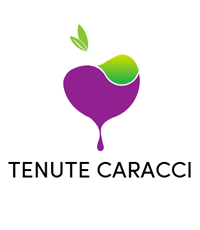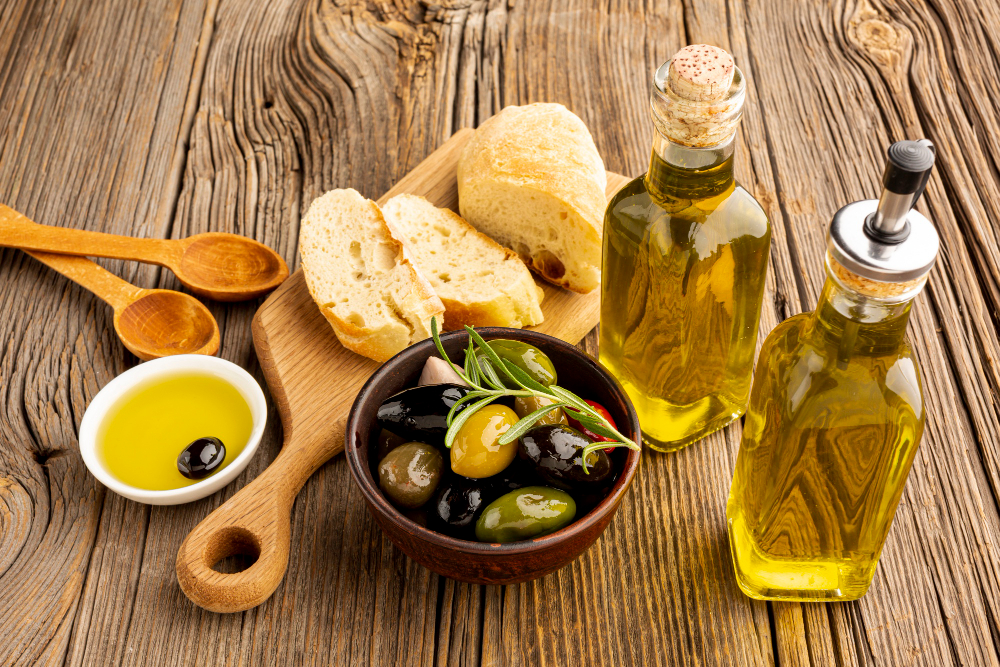D.O.P. Oil
Olive Oil and Health: Why It’s the Secret of the Mediterranean Diet
When we talk about healthy eating, the first model that often comes to mind is the Mediterranean Diet, recognized by UNESCO as an Intangible Cultural Heritage of Humanity. At the heart of this eating style is a simple yet extraordinarily precious ingredient: olive oil. It is not just a condiment, but a true ally for health — a “liquid gold” that has graced the tables of Mediterranean countries for centuries.
But what makes olive oil so special? Why is it considered the secret to longevity and well-being among Mediterranean populations?
An Ancient and Natural Food
Extra virgin olive oil is obtained by cold-pressing olives, without the use of chemicals or industrial processes. This method preserves its organoleptic and nutritional properties, delivering a natural product rich in beneficial compounds.
The use of olive oil dates back more than 6,000 years, to regions like Mesopotamia and the Levant. Ancient peoples used it not only as food, but also for cosmetic, therapeutic, and religious purposes. Today, science has confirmed what those civilizations already knew: olive oil is a true elixir of health.
Nutritional Benefits
Olive oil is primarily made up of monounsaturated fats, especially oleic acid, which accounts for about 70–80% of its composition. These are considered “good” fats because they help reduce LDL (“bad” cholesterol) and raise HDL (“good” cholesterol).
But that’s not all — extra virgin olive oil is also rich in:
- Polyphenols, powerful antioxidants that fight free radicals and oxidative stress.
- Vitamin E, which protects cells from aging.
- Vitamin K, essential for blood clotting and bone health.
- Squalene, a natural anti-inflammatory and protective compound.
All these nutrients work in synergy to support overall well-being.
Heart, Brain, and Longevity
One of the most studied benefits of olive oil concerns cardiovascular health. Numerous studies have shown that regular consumption of extra virgin olive oil reduces the risk of heart disease, heart attacks, and strokes. Polyphenols help keep arteries elastic, lower inflammation, and reduce blood pressure.
Olive oil also has positive effects on brain health. Recent research links olive oil intake to a reduced risk of neurodegenerative diseases like Alzheimer’s. Its healthy fats support memory, concentration, and cognitive function.
Finally, one of the most fascinating aspects is its connection to longevity. In the so-called “Blue Zones,” areas of the world where life expectancy exceeds the global average, olive oil is always present at the table — such as in Sardinia and on the Greek island of Ikaria.
The Pillar of the Mediterranean Diet
The Mediterranean Diet is not a restrictive diet but a lifestyle based on fresh, seasonal, and local foods. Olive oil is its main fat source, replacing less healthy fats like butter and margarine. It is used not only to season food, but also as the base for light cooking, on vegetables, legumes, fish, and bread.
Unlike other diets that demonize fats, the Mediterranean Diet teaches us that the quality of fats matters — and this is where extra virgin olive oil plays an irreplaceable role.
Conclusion
Olive oil is not just food; it is a symbol of culture, tradition, and health. Incorporated daily in a balanced diet and paired with an active lifestyle, it is one of the best-kept secrets of the Mediterranean Diet.
In a world searching for exotic superfoods and trendy diets, the key to well-being might lie in something we’ve had all along: a drizzle of raw olive oil over a salad, bruschetta, or vegetables — simple yet powerful for our health.


